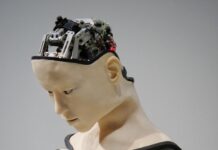The integration of IoT in healthcare represents a monumental shift in the way we approach medical treatment and patient care. This transformative technology has transcended its novelty phase to become an integral part of the healthcare sector, impacting patients, healthcare providers, and medical institutions. In this extensive exploration, we delve into the multifaceted world of IoT in healthcare, uncovering its applications, challenges, and the profound impact it has on the healthcare ecosystem.
IoT in Healthcare: A Paradigm Shift
IoT in healthcare signifies a paradigm shift in the delivery of healthcare services and the management of patient well-being. The Internet of Things (IoT) encompasses a vast network of interconnected devices, sensors, and systems that collect and exchange data in real-time. Within the healthcare context, this technology is leveraged to monitor, diagnose, treat, and manage health conditions in a way that was once considered science fiction.
Applications of IoT in Healthcare
The applications of IoT in healthcare are extensive and transformative. Here are some key areas where IoT is making a significant impact:
1. Remote Patient Monitoring: IoT devices allow healthcare providers to remotely monitor patients’ vital signs and health parameters, enabling early detection of issues and timely interventions.
2. Wearable Health Tech: Smart wearables, such as fitness trackers and smartwatches, empower individuals to track their health metrics and share data with healthcare professionals.
3. Medication Adherence: IoT-enabled pill dispensers and medication management systems help patients adhere to prescribed treatment regimens.
4. Telehealth and Telemedicine: IoT supports virtual consultations, enabling healthcare providers to offer remote medical services, consultations, and diagnoses.
5. Smart Hospitals: Healthcare institutions are utilizing IoT for hospital management, asset tracking, energy efficiency, and patient flow optimization.
6. Disease Management: Chronic disease patients can benefit from IoT devices that continuously monitor their condition and provide data for healthcare interventions.
7. Drug Management: IoT helps in monitoring the storage and condition of pharmaceuticals, ensuring drug safety and efficacy.
8. Patient Engagement: Patients can actively engage in their healthcare through IoT-enabled health apps, which provide insights into their conditions and treatment plans.
9. Predictive Analytics: Healthcare providers use IoT data to predict disease outbreaks and allocate resources efficiently.
10. Elderly Care: IoT devices support independent living for the elderly by providing safety and health monitoring.
Strategies for Implementing IoT in Healthcare
The successful implementation of IoT in healthcare relies on well-thought-out strategies. Here are key approaches that healthcare institutions and professionals can employ:
1. Data Security: Ensuring the security of patient data is paramount, requiring robust encryption, access controls, and compliance with healthcare regulations.
2. Interoperability: Ensuring that different IoT devices and systems can communicate and share data is crucial for comprehensive patient care.
3. Standardization: Standardized protocols and interfaces enable the seamless integration of IoT devices into healthcare ecosystems.
4. Privacy Considerations: IoT in healthcare must address privacy concerns, with clear policies on data usage and consent.
5. Education and Training: Healthcare professionals and patients should be educated on the proper use of IoT devices and data interpretation.
6. Scalability: Healthcare institutions need to plan for the scalability of IoT systems as patient volumes and data streams grow.
Challenges and Considerations in IoT in Healthcare
While IoT offers immense potential in healthcare, it comes with its own set of challenges and considerations:
1. Data Security: Protecting patient data from cyber threats is a constant concern, requiring robust security measures.
2. Data Privacy: IoT devices collect sensitive health data, necessitating compliance with data privacy regulations like HIPAA (Health Insurance Portability and Accountability Act).
3. Interoperability: Ensuring that different devices and systems can communicate and share data remains a technical challenge.
4. Ethical Use: The ethical use of patient data is a critical consideration, particularly in research and treatment decisions.
5. Data Overload: The sheer volume of data generated by IoT devices can overwhelm healthcare professionals without proper data management and analytics tools.
6. Regulatory Compliance: Healthcare institutions must adhere to complex healthcare regulations when implementing IoT.
The Transformative Power of IoT in Healthcare
The integration of IoT in healthcare has ushered in transformative changes that extend beyond the healthcare sector:
1. Improved Patient Care: Remote monitoring, real-time data, and predictive analytics enable more effective and personalized patient care.
2. Chronic Disease Management: Patients with chronic conditions benefit from continuous monitoring and timely interventions.
3. Telehealth: Telehealth and telemedicine offer convenient access to healthcare, particularly in underserved regions.
4. Hospital Efficiency: Smart hospitals enhance the efficiency of healthcare institutions by optimizing resource allocation and patient flow.
5. Enhanced Wellness: Wearable health tech encourages individuals to take an active role in their health and wellness.
6. Public Health: IoT data supports public health efforts, such as disease surveillance and resource allocation during health crises.
7. Cost Savings: Efficient use of healthcare resources and early interventions can lead to cost savings.
The Future of IoT in Healthcare
The future of IoT in healthcare holds immense promise, with emerging trends including:
1. AI Integration: The integration of artificial intelligence with IoT will enhance data analysis and predictive capabilities.
2. Edge Computing: Edge computing will process data closer to the source, reducing latency and enabling real-time decision-making.
3. Wearable Innovations: Wearable health tech will continue to evolve, offering more sophisticated and specialized devices.
4. Blockchain: Blockchain technology can enhance data security and interoperability in healthcare.
5. Personalized Medicine: IoT data will drive the development of personalized treatment plans and interventions.
6. Health Data Marketplaces: Patients may have more control over their health data, potentially monetizing it for research.
IoT in healthcare is not just a technological advancement; it is a revolution in patient care and healthcare management. The responsible and ethical adoption of IoT holds the potential to improve patient outcomes, enhance healthcare efficiency, and transform the way we approach wellness and disease management. This transformation is not only inevitable but also holds the potential to usher in a new era of healthcare innovation and improved patient well-being.
The incorporation of IoT in healthcare marks a pivotal moment in the healthcare industry’s evolution. This transformational technology has shifted from being a novelty to an indispensable component of healthcare services, affecting not only patients but also healthcare providers and institutions. In our extensive exploration of IoT in healthcare, we have uncovered its applications, strategies, challenges, considerations, and its profound impact on the healthcare ecosystem.
IoT in healthcare represents a paradigm shift in healthcare service delivery and patient well-being management. This technology leverages a vast network of interconnected devices, sensors, and systems to collect and exchange real-time data, revolutionizing the approach to medical treatment and wellness management.
The applications of IoT in healthcare are wide-ranging and transformative. They encompass remote patient monitoring, wearable health technology, medication adherence, telehealth, smart hospital management, disease management, drug management, patient engagement, predictive analytics, and elderly care. IoT enhances patient care, treatment, and wellness management in ways that were once considered the realm of science fiction.
The successful implementation of IoT in healthcare hinges on well-crafted strategies that prioritize data security, interoperability, standardization, privacy considerations, education and training, and scalability. However, IoT in healthcare presents its own set of challenges and considerations, including data security, data privacy, interoperability, ethical use, data overload, and regulatory compliance.
The transformative power of IoT in healthcare extends beyond healthcare institutions. It enhances patient care and chronic disease management, facilitates telehealth and telemedicine, optimizes hospital efficiency, encourages individual wellness, supports public health efforts, and potentially leads to cost savings.
The future of IoT in healthcare holds immense promise, with emerging trends like AI integration, edge computing, wearable innovations, blockchain implementation, personalized medicine, and health data marketplaces. These trends are poised to further revolutionize patient care and wellness management.
In conclusion, IoT in healthcare is not just a technological advancement; it is a revolution in healthcare service delivery and patient wellness management. The responsible and ethical adoption of IoT has the potential to significantly enhance patient outcomes, improve healthcare efficiency, and transform the way we approach wellness and disease management. This transformation is not only inevitable but also holds the potential to usher in a new era of healthcare innovation and enhanced patient well-being.

















